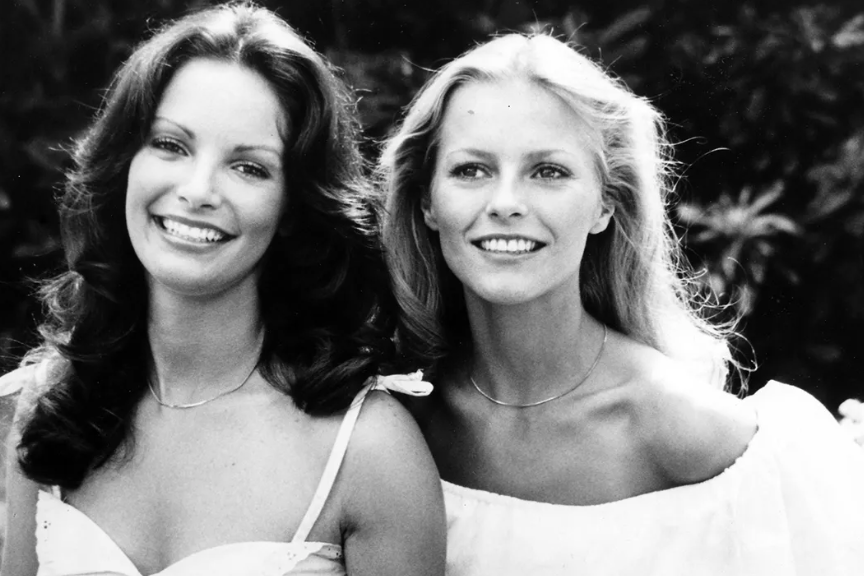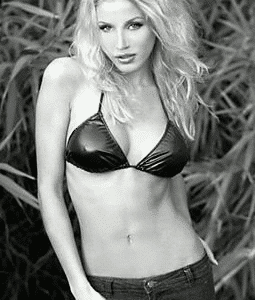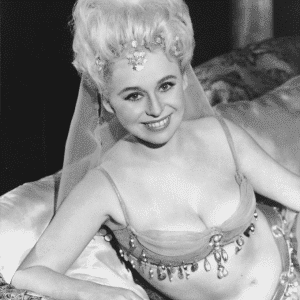When Charlie’s Angels premiered in 1976, it did more than just entertain viewers with suspenseful cases and thrilling action scenes. This iconic show revolutionized the way women were portrayed in television, particularly in the male-dominated action genre. With characters like Kelly Garrett and Kris Munroe leading the charge, Charlie’s Angels became a cultural touchstone that empowered women and challenged traditional gender norms.
Breaking New Ground: The Arrival of “Charlie’s Angels”

In the late 1970s, television was saturated with male-centric crime dramas and action series. The idea of a female-led action show was virtually unheard of. But Charlie’s Angels changed that by putting three fearless women in the spotlight. These women, known as the “Angels,” worked as private investigators for the mysterious Charlie Townsend, tackling cases that ranged from solving murders to thwarting high-stakes heists.
The show’s introduction of female characters as capable, confident action heroes broke the mold and captivated audiences across the nation. Women were finally being portrayed as the leads in a genre that had long been dominated by men, showing that they, too, could embody strength, courage, and intelligence.
Kelly Garrett: Jaclyn Smith’s Graceful and Determined Angel
At the core of Charlie’s Angels was Kelly Garrett, played by Jaclyn Smith. Kelly was the sophisticated, level-headed member of the team who handled high-pressure situations with grace. Her background as a former model added an air of elegance to her character, but make no mistake—Kelly was a force to be reckoned with.
Smith’s portrayal of Kelly went beyond mere beauty. She brought depth to the character, blending poise with an unyielding resolve to seek justice. Whether she was decoding complex clues or facing off against dangerous criminals, Kelly Garrett’s courage and intelligence shone through. Smith’s performance embodied the essence of an empowered woman who wouldn’t allow herself to be confined by societal expectations.
Kris Munroe: Cheryl Ladd’s Dynamic Energy and Playful Charm
When Cheryl Ladd joined the cast in the second season as Kris Munroe, the younger sister of original Angel Jill, she brought a fresh and lively spirit to the team. Kris was the perfect complement to Kelly’s calm and collected demeanor. Her character started as a rookie investigator, but as the series progressed, Kris grew into a confident and skilled detective, proving that she had what it took to stand alongside her fellow Angels.
Ladd infused Kris with a bubbly, playful energy that made her instantly relatable. But beneath her lighthearted personality was a tenacious investigator who wasn’t afraid to dive into dangerous situations. Kris’s journey from novice to seasoned detective made her an inspiring character, showing that growth and resilience are key elements of strength.
Shattering Gender Stereotypes in Television
The success of Charlie’s Angels went beyond the characters themselves. At a time when women were often cast in supporting roles or relegated to romantic subplots, Kelly, Kris, and their fellow Angels were front and center, solving cases and outsmarting villains. This was a radical departure from the stereotypical female roles that dominated television during the era.
The show demonstrated that women could lead an action series with the same intensity, intelligence, and skill as their male counterparts. By focusing on empowered female protagonists, Charlie’s Angels helped pave the way for a more diverse and inclusive portrayal of women in media. It challenged viewers to reimagine the possibilities of female strength and courage, showcasing women who were capable, confident, and unapologetically bold.
The Impact on Future Generations of Female Characters

Charlie’s Angels didn’t just entertain—it inspired. The series has left an indelible mark on popular culture, and its influence can be seen in countless female characters who followed. Shows like Alias, Buffy the Vampire Slayer, and The X-Files all feature strong female leads who continue the legacy of Kelly and Kris, proving that women have a rightful place in the action genre.
The Angels became role models for viewers who wanted to see women in positions of power and influence. By defying traditional gender roles, they encouraged a generation of young women to believe in their potential and to strive for independence and resilience. Their legacy serves as a testament to the transformative power of television and the positive impact that diverse representation can have on society.
A Lasting Cultural Phenomenon
Even decades after its original run, Charlie’s Angels remains a cultural phenomenon. The show has been rebooted multiple times, from a film series in the early 2000s to a recent television adaptation, demonstrating the timeless appeal of its characters and the universal themes of empowerment and friendship. But no matter how many times the Angels’ story is reimagined, the original characters—Kelly Garrett and Kris Munroe—will always hold a special place in the hearts of fans.
Their influence extends beyond the screen, as they continue to inspire discussions about the importance of representation and the need for strong, complex female characters in all genres. Charlie’s Angels challenged the status quo, and the legacy of Kelly and Kris reminds us that female action heroes are here to stay.
Conclusion: The Enduring Legacy of Kelly Garrett and Kris Munroe
Charlie’s Angels was more than just a television show; it was a revolution in the way women were portrayed in popular media. Through characters like Kelly Garrett and Kris Munroe, the series introduced viewers to a new kind of female hero—one who could be tough, smart, and compassionate, all at once. The show’s success paved the way for future generations of female protagonists who continue to push boundaries and redefine what it means to be a hero.
Today, the legacy of Charlie’s Angels lives on, inspiring new audiences to embrace their own strength and resilience. Kelly and Kris proved that women could be action stars, detectives, and role models. And as fans continue to revisit their adventures, they are reminded of the power of representation and the enduring impact of complex, empowered female characters.


